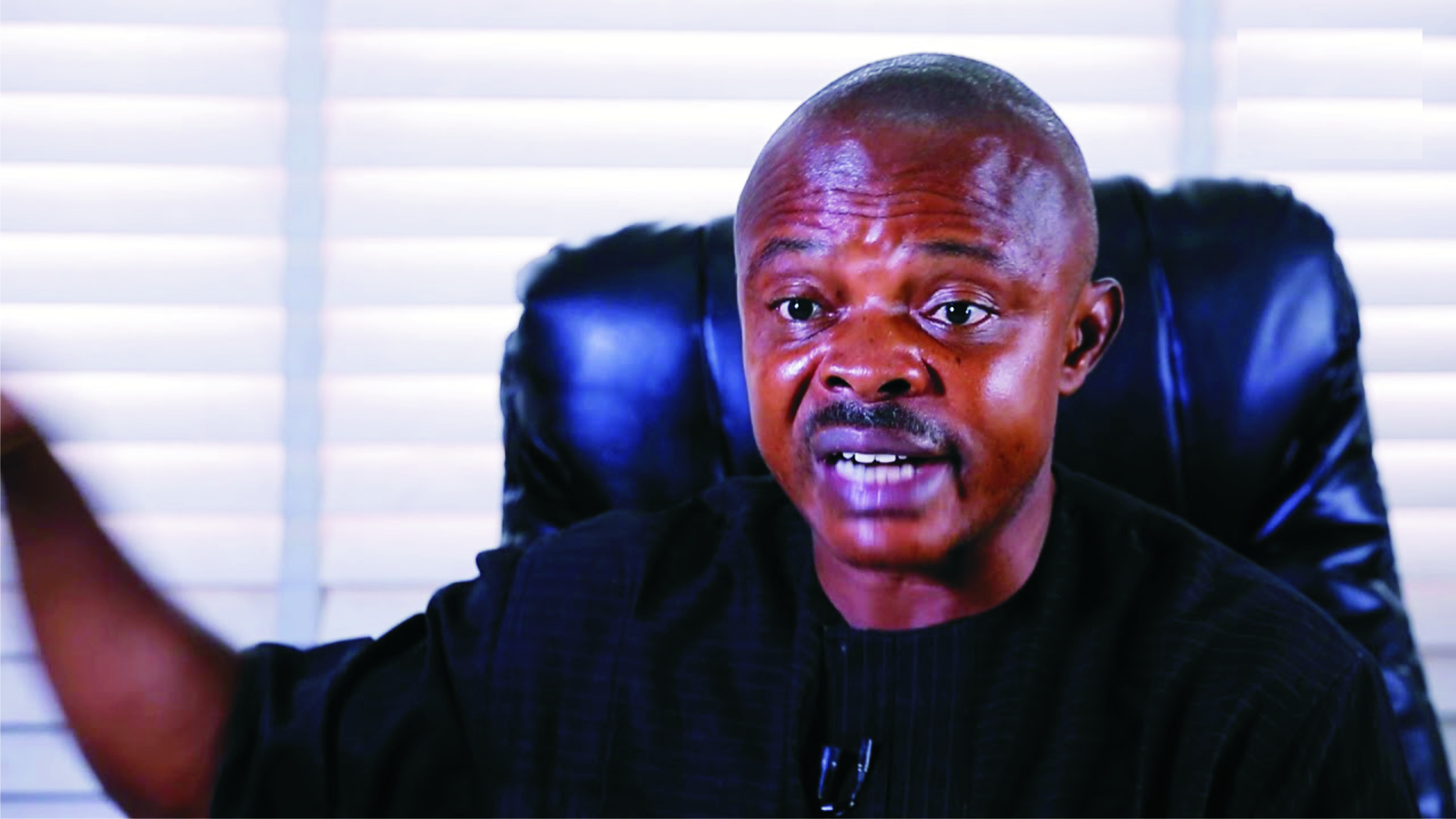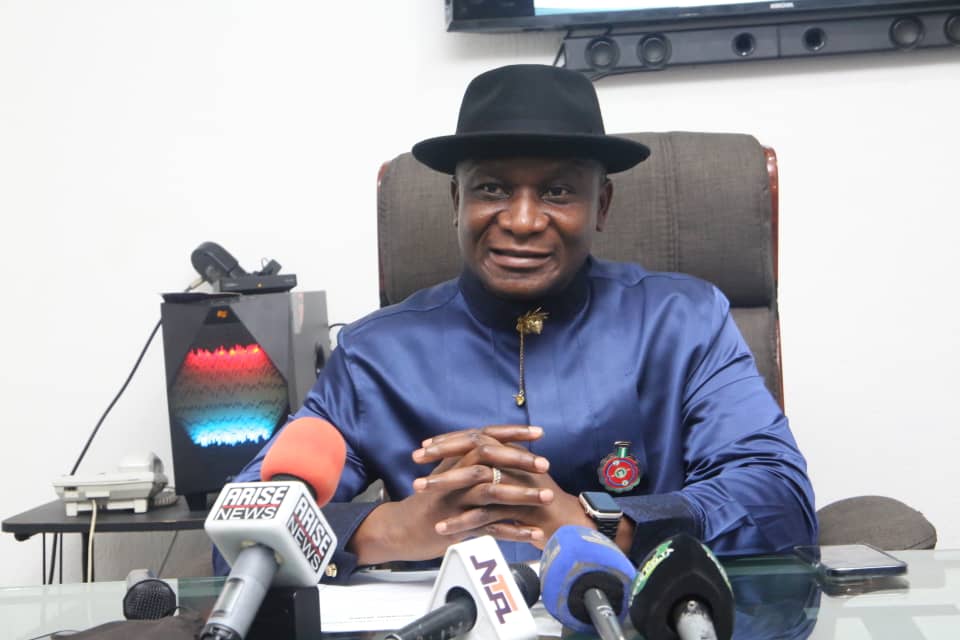News
AfDB Dissatisfied With $210m Nigeria Agro-Industrial Zones Project

The African Development Bank has expressed dissatisfaction over the slow progress of the first phase of Nigeria’s Special Agro-Industrial Processing Zones project, raising concerns about the disbursement of the $210m loan allocated for the initiative.
According to the bank’s latest Implementation Progress and Results Report dated January 30, 2025, obtained from its website by The Tide yesterday, 98.39 per cent of the total loan remains undisbursed more than two years after the project was approved.
The SAPZS-I project was approved in December 2021 as part of efforts to drive agro-industrial development in Nigeria by establishing processing hubs, supporting infrastructure, and improving agricultural productivity.
However, the project has suffered significant delays, leading to warnings from the AfDB and the introduction of remedial measures to hasten implementation.
The report read, “Procurement of supervision consultants for the DBO contractors is at RFP stage in the case of Kaduna State and REOI stage for Oyo, Imo and Cross River State Design Build and Operate bidding documents have been cleared for four states of Kaduna, Cross River, Oyo and Ogun states and Kaduna has already advertised its DBO.
“All these will result in improved implementation, disbursement, and rating in the year 2025. However overall performance status from the time of project approval to date is relatively slow, especially with respect to project disbursement.”
It reveals that of the total loan amount of $210m, only 1.61 per cent has been disbursed as of December 2024
The ADB was to provide $160m of the total loan, while the Africa Growing Together Fund would provide an additional $50m.
Further checks by The Tide showed that AGTF is a $2bn facility sponsored by the People’s Bank of China and administered by the AfDB.
Despite the availability of these funds, the pace of disbursement has been sluggish.
Further breakdown of the figures shows that only 1.93 per cent of the AfDB’s portion of the loan has been disbursed, leaving 98.07 per cent undisbursed.
Similarly, the AGTF’s portion has recorded a disbursement rate of just 0.58 per cent, with 99.42 per cent of the funds yet to be utilised.
The bank identified administrative inefficiencies, weak capacity among project staff, and delays in procurement processes as key factors hindering the disbursement and implementation of the initiative.
The AfDB has also raised concerns about the slow progress in Imo State, which has not commenced any major activities under the project.
Unlike Kaduna, Cross River, Oyo, and Ogun states, which have made some progress, Imo has lagged.
The bank has formally warned the Imo State Government to begin implementation immediately or risk losing its share of the loan.
The report states that the bank has informed “the Government of Imo State on the need to start activities or the bank will recourse to a cancellation of the loan.”
Meanwhile, the bank has also directed the Ogun State Government to provide an acceptable Service Level Agreement to ensure continued funding.
The Tide learned that a service level agreement defines the level of service expected from a vendor, laying out metrics by which service is measured and remedies should service levels not be achieved.
It is often a critical part of any technology vendor contract.
Despite the project’s potential to drive agro-industrial growth, the bank noted that weak capacity among the staff managing the initiative has posed a major challenge.
The National Project Coordinating Unit and Participating State Implementing Units were found to lack the expertise needed to efficiently manage financial resources, procurement processes, and environmental and social safeguards.
The report highlights that, as part of efforts to address these shortcomings, the bank has deployed two experienced consultants to support project staff and ensure they meet the bank’s fiduciary requirements.
Due to the weak capacity at the PSIUs and the NPCU, the bank noted that it is providing “handholding support to both National Coordinating Office at the Federal level and PSIUs in terms of financial management, procurement processes, Environmental and Social Safeguards etc; reinforced by regular technical workshops on Bank fiduciary requirements.
“The Bank has also provided additional two experienced consultants to backstop and hand hold the project staff on the implementation of project activities.”
News
May Day: Labour Seeks Inclusiveness In Policy-making

The Organised Labour yesterday, called on the Federal Government to ensure inclusiveness in policy making and guide against erosion of rights, such as free speech and association.
The President, Nigeria Labour Congress (NLC), Mr Joe Ajaero made the call at the 2025 Workers’ Day celebration held at the Eagle’s Square, Abuja.
The Tide source reports Ajaero and the President, Trade Union Congress, Mr Festus Osifo delivered a joint statement on behalf of the organised labour at the event.
Ajaero described May Day as, not only a moment to honour workers’ sacrifices, but also a platform to demand justice and accountability from those in public office.
He frowned at the alleged suppression of protests, and the erosion of rights of workers by some agents
According to him, workers have a duty to resist economic injustice, insecurity, and policies that undermine their dignity.
Speaking on the theme of the day, the NLC President underscored the need for Nigerian workers to reclaim the civic space and resist policies that contribute to worsening economic conditions.
“Our theme this year – “Reclaiming the Civic Space in the midst of Economic Hardship – reflects the urgent need for citizens to protect democracy and push back against repression.
“The civic space, where Nigerians express their concerns and challenge injustices is shrinking.
“If we fail to reclaim this space, the foundation of our democracy risks collapse,” he said
Ajaero, therefore, urged workers to unite and resist division, fear, and despair.
He also urged them to mobilise and organise for change, declaring that the right to demand better conditions is non-negotiable.
“Without workers, there is no society; without labour, there is no development. We must take our place in the fight for economic justice and democratic governance.”
Speaking in the same veins, Osifo said workers are the backbone of the nation—the educators, healthcare providers, builders, farmers, and innovators who sustain its economy -.
He stressed the need for the labour to reclaim the civic space even in the midst of economic hardship.
News
2025 UTME: JAMB Disowns Site Requesting Payment From Candidates

The Joint Admissions and Matriculation Board (JAMB) has disassociated itself from a fraudulent site requesting payments from candidates who missed the ongoing 2025 Unified Tertiary Matriculation Examination (UTME).
The board said that the site, “Copyrightwriter Personal J Rescheduling Flw” and account number 8520641017 at Sterling Bank, associated with it, are scam.
The disclaimer is contained in a statement made available to newsmen in Abuja on Thursday by the Board’s Public Communication Advisor, Dr Fabian Benjamin.
Benjamin said the account is being exploited to defraud unsuspecting candidates who missed their UTME.
“We issue this urgent notice to inform the public about this nefarious scheme targeting candidates who were unable to participate in the UTME.
“Some unscrupulous individuals are deceitfully soliciting payments of N15,700 under the false pretence of offering rescheduling services for the examination.
“Let us be unequivocal: this, it is a blatant scam, and we are confident that the public will not fall prey to such cheap and regressive tactics.
” The individuals behind this scam have no affiliation with JAMB or any legitimate government agency.
“The account details provided in these communications are entirely fictitious and bear no connection to any official processes; they exist solely for the purpose of perpetrating fraud,” he said.
Benjamin called on Sterling bank to take immediate and decisive action against this criminal activity.
According to him, JAMB has reported the matter to the relevant security agencies and actively pursuing those responsible for this deceitful act.
He further said that “JAMB does not reschedule examinations for candidates who miss their scheduled tests due to reasons unrelated to the Board’s actions”.
He, however, said that the Board is conducting a thorough investigation for candidates whose biometrics failed during verification and were thus unable to sit for the examination.
He said those without discrepancies would be invited to retake the examination at no cost , stressing that “no cost is required”
“It is imperative to understand that JAMB does not charge any fees for examinations after a candidate has completed their registration.
“We strongly urge all candidates to remain vigilant and not to succumb to these fraudulent schemes.
“Protect yourselves and report any suspicious activity immediately,” he explained.
News
NDDC Seeks UN’s Support To Accelerate Niger Delta Development

The Niger Delta Development Commission (NDDC) has expressed its willingness to partner with the United Nations (UN) to accelerate the development of the Niger Delta region.
Dr Samual Ogbuku, Managing Director of the NDDC, made the appeal in a statement issued by the commission’s Director of Corporate Affairs, Mrs Seledi Thompson-Wakama, in Port Harcourt on yesterday.
According to the statement, Ogbuku sought the UN’s support during his visit to the UN Resident and Humanitarian Coordinator (UNRHC), Mr Mohammed Fall, at the UN regional office in Abuja.
He called on the global body to provide the NDDC with technical assistance and expert services to support the region’s development.
“We are eager to collaborate with the UN, recognising that the state governments in the region and the NDDC alone cannot achieve the level of regional development required,” he said.
Ogbuku identified key areas where support would be needed, including the provision of portable and affordable drinking water powered by high-tech solar energy sources.
He also highlighted the importance of reforesting the mangrove swamps, which have been severely damaged by decades of environmental degradation caused by oil exploration in the Niger Delta.
“Although the NDDC has made progress in providing solar-powered streetlights across the region, we still require UN support in delivering solar energy solutions for residential buildings.
“We also wish to explore the possibility of installing solar mini-grids in homes across communities, which would boost local commerce and trade,” he added.
The NDDC managing director further appealed for increased UN involvement in areas such as healthcare, education, youth training, gender development, and food security.
Ogunku stated that such interventions would significantly enhance the standard of living in the region.
In response, Fall affirmed the UN’s readiness to collaborate with the NDDC to fast track development in the Niger Delta.
He assured that the UN would support initiatives in food security, job creation, education, and renewable energy, among other areas.
“We aim to approach development in the Niger Delta holistically, rather than focusing solely on environmental pollution.
“This is merely an entry point; however, the UN’s development vision aligns with the Sustainable Development Goals (SDGs), which are designed to positively impact various aspects of people’s lives,” Fall stated.
He assured the NDDC of continued and fruitful engagements to drive the region’s development.

